How to Store Fruits & Vegetables - Refrigerate or Not?
Do you visit your local green market or grocery store and go crazy buying all the beautiful fruits and vegetables that you see? I know I do! Then you eat and cook with all that delicious freshness throughout the week and then, unfortunately, watch the rest ripen too quickly and go bad.
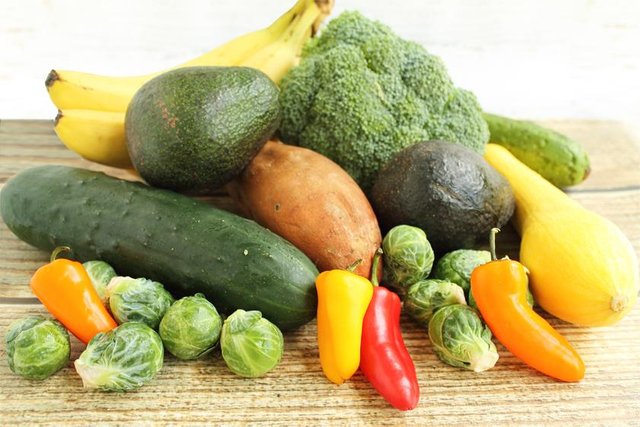
Well, that happened one too many times to me and I was determined to get to the bottom of how to store all my produce properly. Do you refrigerate it, leave it on the counter at room temperature, wash it or not, and how long can it actually last.
If you have always wondered, as I did, how to store fruits and vegetables, I did some investigating which I hope helps you as much as it did me. I’ve attached an infographic below that is perfect for printing out and sticking on the inside of one of your kitchen cabinets for easy reference. It tells you where to store it and how long it lasts under proper storage. There is a lot more to know but this gives you a good base from which to work.

I now have tomatoes, which I keep on my counter, that taste better and last longer than when I refrigerated them. Same for cucumbers and winter squash. Well, what do you know! I’m one happy foodie!
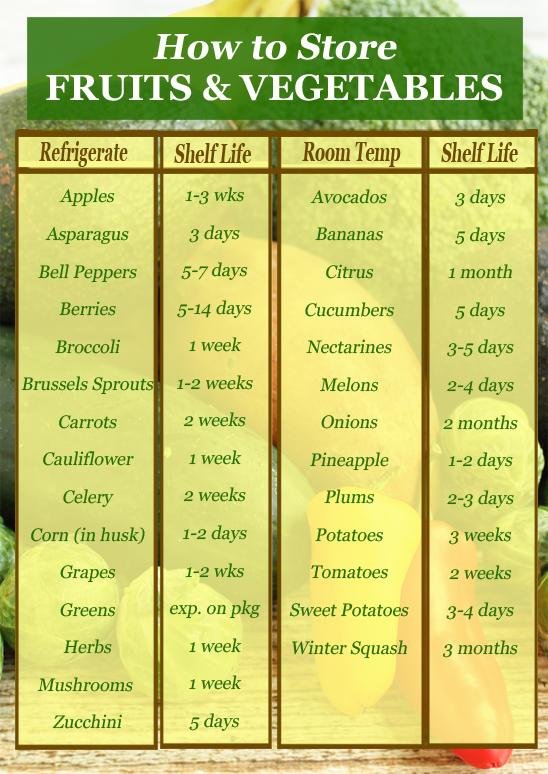
Here are a few other important facts I learned which I know will come in handy.
· High ethylene producers, such as bananas, avocados, apples, peaches, melons, pears, plums and tomatoes, should be kept away from other produce as it will accelerate their ripening.
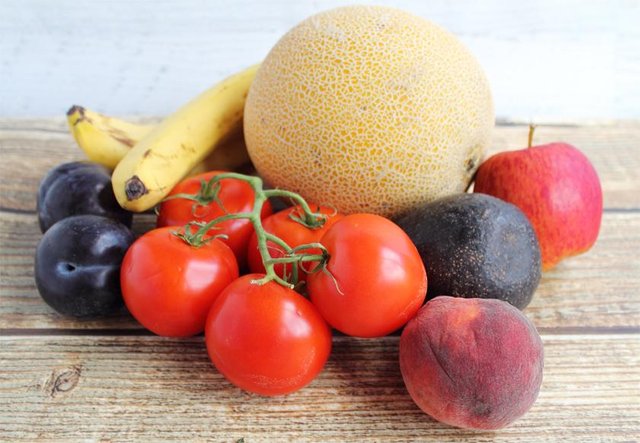
· When fruits or vegetables start to rot, separate from rest of produce, and cut out bad sections immediately.
· Store fruits and vegetables in different drawers of the refrigerator.
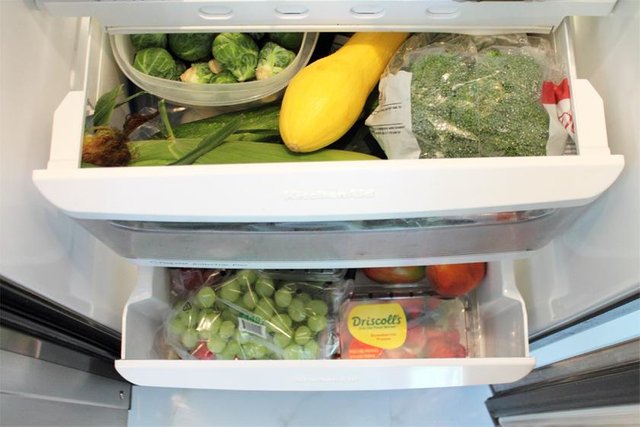
· Most vegetables can be stored, loosely packed, in plastic bags with a few holes in them to allow air to flow freely (see note on asparagus below).
· Non-stone fruit, such as mangos, melon, apples, pineapple and pears should only be refrigerated once they become ripe.
· Stone fruits, like peaches, plums, nectarines, apricots and cherries, should be stored on counter and only refrigerated once ripe.
· Bell peppers, grapes and berries should always be refrigerated. Citrus should be moved to refrigerator only when you want to slow ripening.
· Berries & mushrooms should not be washed prior to storage and they should be stored in their original container.
· Onions and potatoes, other than fingerling, should be stored in open baskets, out of sunlight, and in a cool place.
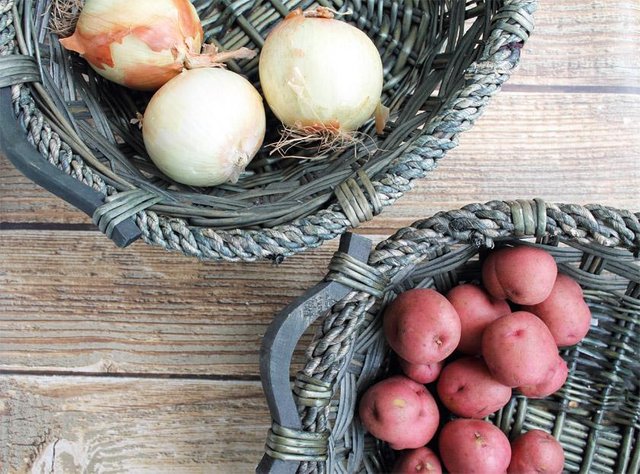
· Certain herbs, such as cilantro, and vegetables, like asparagus, can be stored in the refrigerator in a glass with about an inch of water. Cut about 1” of ends off prior to putting in water.
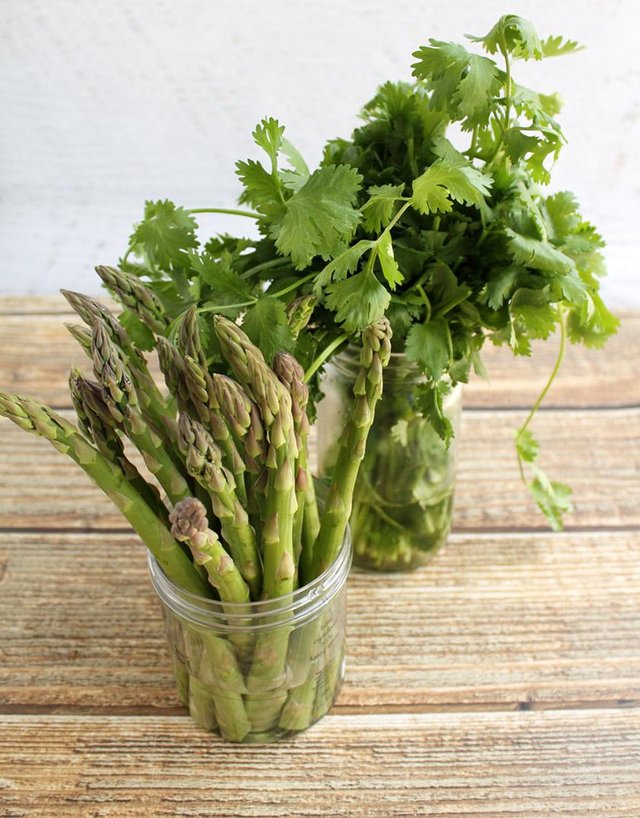
· Lastly, make your green onions last for months by placing fresh onions, with bulbs, in a glass with 1-2” of water and put in a sunlit place. Prior to placing in water, cut off an inch or two from bottom. Then just cut off what you need from the top and watch it continue to grow. Note: Change water when it gets cloudy.
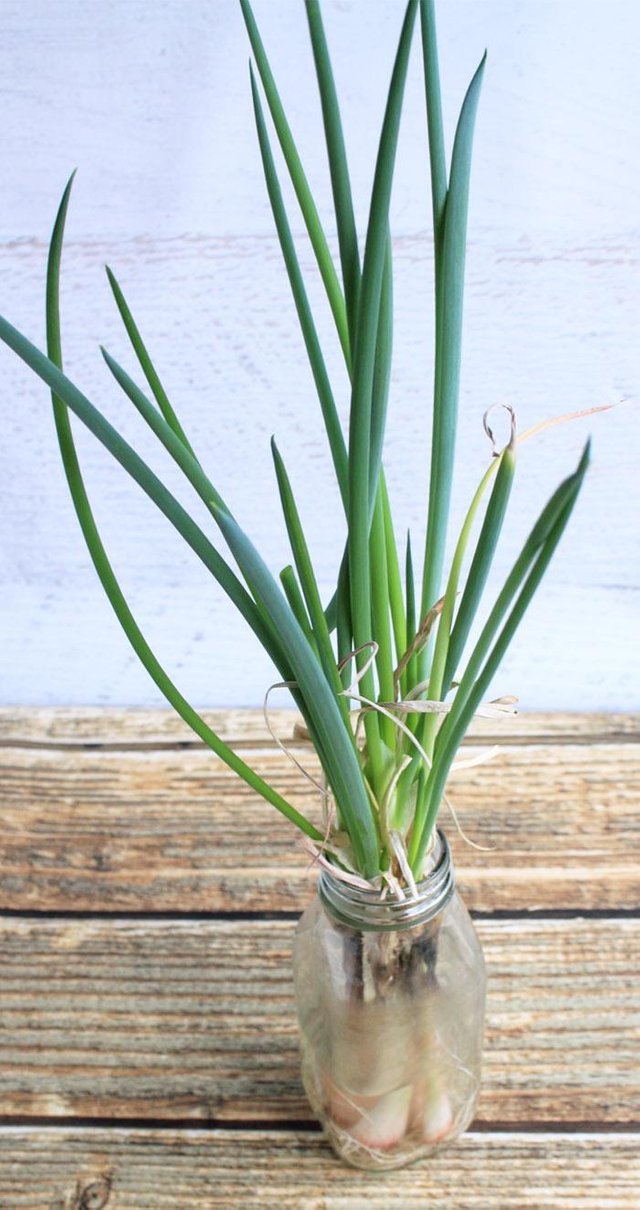
Enjoy & bon appetit!
I love comments and appreciate any and all feedback. If you enjoyed this post please...
Thank you for sharing such important information like this, for us it's necessary to know how to keep our vegetables and fruits in fridge in long time.
Happy Saturday.
Upvoted
Thank you!
Welcome 🙂
Very nice. I want to remind people who might not be used to keeping produce outside the refrigerator to remember to put them in the refrigerator or toss them before going on a vacation. You definitely don't want things like rotten onions and garlic to greet you on your return. (Not that I have ever done that. Well, OK, only once. :-)
I'm so impressed!
Good point! And I know just the smell you are talking about. :-)
Wonderful! You offered some great tips that I was not aware of. I also use Debbie Meyer green bags/boxes. They really do work. I am going to print out your chart. Thanks for sharing. Tess :)